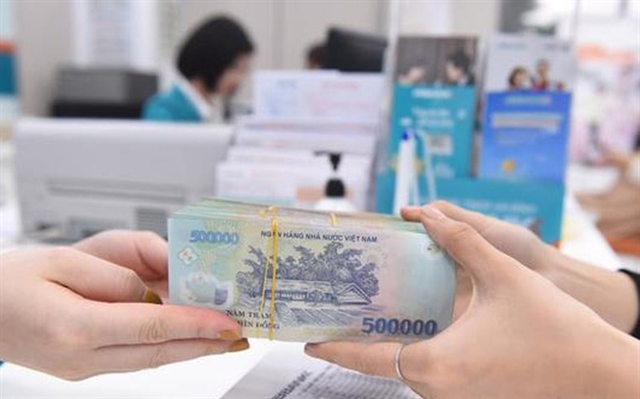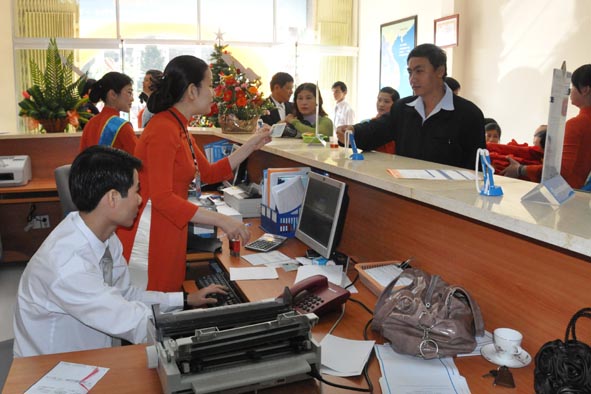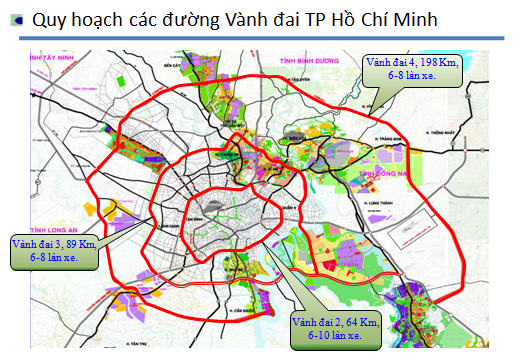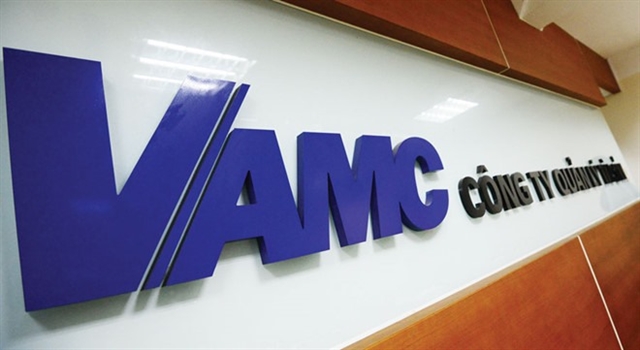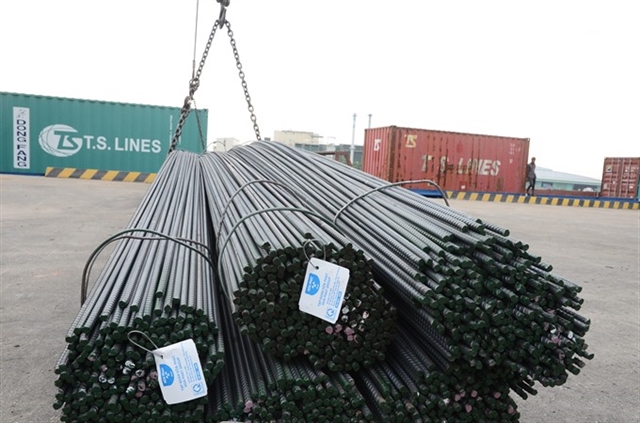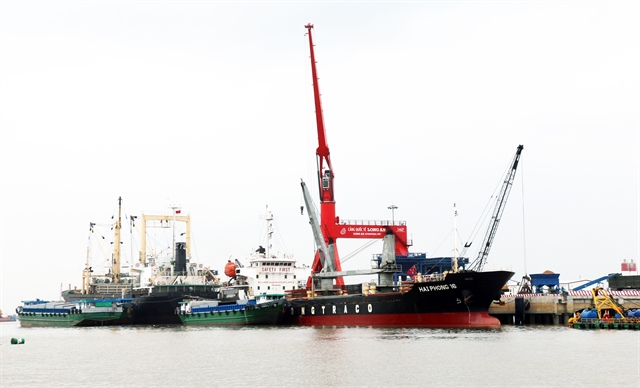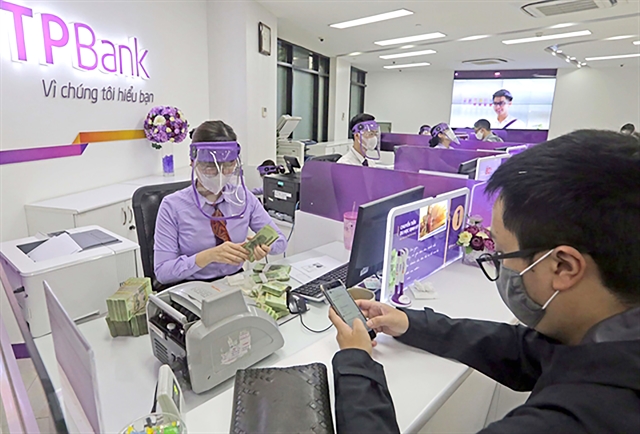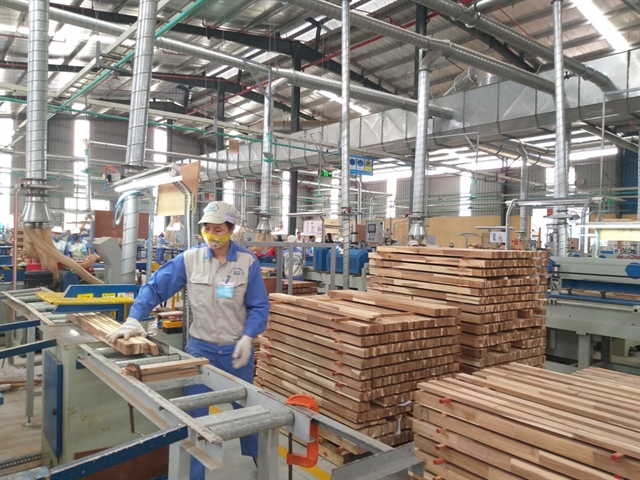By Ly Ly Cao
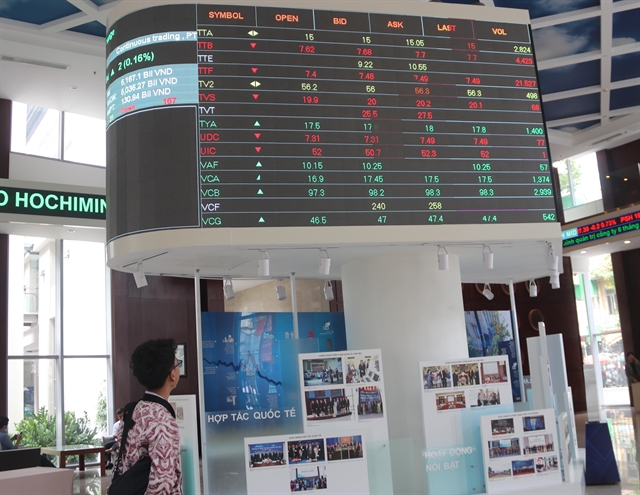
HÀ NỘI — Despite worries that Việt Nam’s stock market might correct in the near future after growing dramatically, experts believe that there are more opportunities than risks for investors.
The market benchmark VN-Index on the Hồ Chí Minh Stock Exchange (HoSe) closed Monday at a historic high of 1,405.81 points. The index has soared since the beginning of the year, up nearly 25.5 per cent and continuously hit new highs.
According to Tạ Thanh Bình, Director of Stock Market Development Department under the State Securities Commission of Vietnam (SSC), the market’s rally is normal as it corresponds to the global trend.
“The gain has not only occurred on Việt Nam’s stock market, but most major stock markets in the world have experienced strong increases since early 2021,” Bình said in the “Stock market and forecast” talkshow, hosted by Kinh tế và Dự báo magazine on June 28.
“As of June 15, the US market climbed 12.4 per cent, the UK market rose by 10 per cent, and the French market jumped by 19 per cent. Countries in Asia such as Korea, Thailand and Japan, all posted gains of over 10 – 12 per cent compared to the beginning of the year.”
The stock market moves ahead of the general economy. Therefore, the recent strong rallies of the market show investors' expectations for the recovery of the economy as a whole post-pandemic.
The global market was reinforced by recoveries of big economies like China and US as they have contained the pandemic, helping to strengthen investors’ confidence.
Similarly, the local stock market was also supported by the country’s macro-economy with positive readings in the first five months of this year. Accordingly, export growth was more than 30 per cent, while credit rates remain at low levels.
Cash flow into other assets like real estate or cryptocurrencies had slowed due to policies from the Government to control these sectors, leading to an increase of investment into the stock market, Bình added.
The market liquidity surged recently with some sessions witnessing trading value of more than US$1 billion.
Another factor supporting the market’s rally is listed companies’ good performance during the pandemic. Despite the general picture that many enterprises lost profits or even filed for bankruptcy, listed companies still posted positive results in the first quarter.
“Instead of disruptions like the previous outbreaks, some companies said that they even received more orders in the ongoing fourth wave of COVID-19. They are just short of workers,” Phan Đức Hiếu, deputy director of Central Institute for Economic Management (CIEM), said at the event.
Data showed that listed companies’ revenues and profits grew 10.9 per cent and 66.8 per cent, respectively, in the first quarter.
In addition, the participation of individual investors is also considered the driving force for the bullish market. However this is also a predictable trend in the market, Hiếu said.
“The stock market has attracted more individual investors during the pandemic as many people have to stay at home or lost their jobs, so they want to earn money through stock investment.
“But because they are untrained investors, their orders rely on their instincts, causing uncertainty in the market,” Hiếu added, recommending these investors should attend classes or learn about the market before joining to reduce risks for themselves and the market.
Bullish months ahead
While the market is thriving and local investors jumped in, foreign investors have seemed to be reluctant to step in as they kept net selling. However, the head of the Stock Market Development Department doesn’t see it as a negative signal.
“Foreign investors net sold stocks, but net bought bonds. There was just a change in their portfolios. Moreover, it was just net selling, not withdrawing,” Bình said.
In May, the net selling force from foreign investors was high, but it was just at an average level compared to other markets in the region, she added. “For example, while they net sold $497 million on Việt Nam’s stock market, the number was US$1.1 billion on Thailand’s market, $2.1 billion on Taiwan’s market and $7.97 billion on the Chinese market.”
As the fundamental factors are still intact, Bình is optimistic about the market in the next six months.
“With macro-economic policies, listed companies’ inner strength, the attractiveness of the stock market and cash outflows from real estate and the crypto market, there are more opportunities than risks for investors,” Bình said.
Surging stocks in the previous rallies will certainly correct, but the overall market is still up, she added. — VNS
